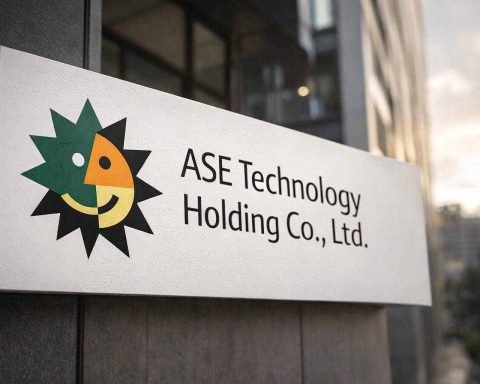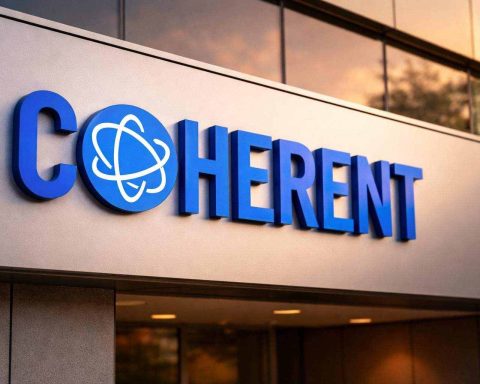Key Facts (as of Sept 27, 2025): Stock price ~$193.35 (last close Sept 26) investing.com; market cap ≈$48.4 B reuters.com. Trailing P/E ~48× (P/E excluding extra items 48.5× reuters.com), forward P/E ~20× reuters.com. EA pays a $0.19 quarterly dividend ($0.76/yr, ~0.39% yield) reuters.com ea.com. FY2025 net bookings ~$7.36 B and revenue $7.463 B ir.ea.com; Q1 FY26 bookings $1.298 B (above guidance) ir.ea.com, revenue $1.671 B ir.ea.com. The stock has rallied sharply this year (market cap +~27% YoY stockanalysis.com), including a recent 15% jump on buyout rumors reuters.com. EA repurchased 17.8 M shares ($2.5 B) in trailing 12 months ir.ea.com (under a $5 B program) and returns ~80% of FCF via buybacks/dividends ea.com 1 .
Latest News (Late Sept 2025):
- Go-private talks: On Sept 26, reports surfaced (WSJ/Reuters) that EA is in advanced talks to go private in a leveraged buyout at about $50 B valuation reuters.com. Investors include Silver Lake, Saudi PIF (via Savvy Games Group) and Kushner’s Affinity Partners. If completed, it would be the largest tech LBO ever. Shares jumped ~15% on the news reuters.com (closing +15%) reuters.com. Analysts note EA “makes sense as an acquisition target – the cash flows are fairly consistent and EA’s annualized titles make for predictable revenue” reuters.com. For Saudi’s Public Investment Fund, the deal would “cement games as cultural infrastructure… as critical to global influence as sports or film,” says NYU’s Joost van Dreunen reuters.com. (The PIF already holds ~25 M EA shares, drawing some “sportswashing” criticism 2 .)
- Game releases: EA recently launched skate. (skateboarding revival) in early access on Sept 16 news.ea.com. The major upcoming title Battlefield 6 is set for Oct 10, 2025 (on PS5/Xbox/PC) ir.ea.com. EA is also due to release its annual sports games in Q3: EA SPORTS FC 26 (soccer), Madden NFL 26, College Football 26, and F1 2025. These blockbusters underpin the firm’s strategy (see below). In early May, EA shares briefly rose 2% on upbeat FY26 guidance driven by its sports franchises 3 .
Company Overview & Leadership:
Electronic Arts (founded May 1982 by Trip Hawkins en.wikipedia.org) is one of the world’s largest video-game publishers. Headquartered in Redwood City, California, it had ~13,700 employees globally (as of Mar 2024) reuters.com. EA is best known for interactive entertainment franchises across sports, action and simulation. Its management team is led by CEO Andrew Wilson (EA board chair, CEO since 2013 reuters.com) and CFO Stuart Canfield reuters.com, among other senior execs.
Products & Gaming Portfolio:
EA’s portfolio spans major franchises:
- Sports: EA SPORTS FC (soccer, formerly FIFA), Madden NFL, NCAA College Football (revived in 2024), EA SPORTS F1 (Formula 1 racing), and other licensed sports titles. The College Football series “exceeded expectations” and, with FC, “drove another record year for EA SPORTS,” CEO Wilson noted 4 .
- Action/Shooter: Battlefield (next-gen FPS) and Titanfall (cancelled internally in 2025 reuters.com), Apex Legends (battle royale), Plants vs. Zombies (casual games).
- Simulation & Other: The Sims life-sim series (25th anniversary; Q4 FY25 saw double-digit growth ea.com), Need for Speed (racing), Dragon Age (RPG), and additional titles. EA also licenses blockbuster IP (e.g. Star Wars, though new projects have been pared back reuters.com). A large portion of revenues comes from live services and microtransactions in these games.
Strategic Developments:
- Pipeline build-out: EA is banking on a deep slate of new releases. Battlefield 6 is branded as a “next-level” title, and Wilson says EA is “building Battlefield as a platform” with community testing ahead investing.com. The company emphasizes its blockbuster IP and plans for global audience growth; at its Sept 2024 Investor Day it aimed to double its user base to 1+ billion in five years ir.ea.com. EA is also leveraging its brands beyond games – e.g. a The Sims movie in partnership with Amazon/MGM was announced 5 .
- Capital allocation: EA committed to returning ~80% of free cash flow via buybacks/dividends ea.com. In FY2025 it repurchased $2.5 B of stock (17.6 M shares) ea.com. A new $5 B share repurchase program is active. The company declared a $0.19/qtr dividend (maintained through FY26) ea.com. Debt is low (~$1.88 B) relative to cash flow 6 .
- Acquisitions/partnerships: EA has historically grown via studio acquisitions (BioWare, DICE, Respawn, Codemasters (2021), etc.) but no major takeovers in 2024–25. Its partnerships include major sports leagues (NFL, F1) and media (e.g. Sims film). Notably, Saudi Arabia’s gaming arm Savvy Games (PIF) holds a stake, and now appears poised to help take EA private.
Financial Performance & Earnings:
EA’s FY2025 (year ended Mar 31, 2025) saw modest revenue decline but record sports topline: net bookings $7.355 B ir.ea.com (vs. $7.43 B FY24) and net revenue $7.463 B ir.ea.com (vs. $7.562 B FY24). Q4 FY25 was particularly strong – net revenue $1.895 B (+6.5% YoY) ir.ea.com and net income $254 M (vs $182 M) ir.ea.com, driven by FC, NCAA football, and The Sims. FY25 GAAP net income was $1.121 B (down ~12% YoY) ir.ea.com, EPS $4.25 vs $4.68 prior year ir.ea.com. Operating cash flow was healthy ($2.079 B for FY25 7 ).
In Q1 FY26 (ending Jun 30, 2025) EA beat guidance: net bookings $1.298 B ir.ea.com (vs guidance top-end $1.275 B) and net revenue $1.671 B ir.ea.com. However, management trimmed Q2 FY26 (ending Sep 30) guidance: bookings $1.80–1.90 B (vs ~$2.01 B consensus) reuters.com, citing cautious consumer spending. For FY26 management expects bookings $7.6–8.0 B ir.ea.com (mid-single-digit growth) with EPS $3.09–3.79 ir.ea.com (below $4+ in FY25), reflecting Battlefield/SKATE marketing. Importantly, EA reiterated its long-term financial framework: >80% FCF return to shareholders and margin expansion by FY2027 ir.ea.com 1 .
Expert Commentary & Outlook:
Industry analysts generally view EA positively but with caution. Post-Q4, Jefferies analysts noted EA’s sports franchises and Battlefield give “confidence in a more sustainable top and bottom line story” reuters.com. D.A. Davidson’s Wyatt Swanson observes EA’s strong recurring cash flow from annual titles, making it an attractive buyout target reuters.com. On the other hand, some warned of headwinds: the Reuters July report noted EA’s guidance cut and consumer caution in sports games reuters.com. (In May 2025, Wedbush maintained a high $210 price target gurufocus.com, reflecting optimism on EA’s pipeline.) Over the past year analysts’ consensus rated EA as Moderate Buy, with price targets ranging from ~$150 to $210 (many clustering in the $160–180 area). (For instance, market tracker StockTargetAdvisor lists an average target ~$167 ainvest.com.) As of late Sept, the market’s forward P/E ~20× reuters.com signals expectations of continued earnings growth.
Stock Performance vs. Peers:
EA stock has outperformed many tech and gaming indexes in 2025. After ranging in the $150s early in 2025, shares broke out on strong Q4 guidance (May +2% reuters.com) and most recently the buyout buzz (+15% surge reuters.com). Year-to-date through Sept, EA is up roughly +30% (vs. the S&P 500’s similar advance). Its market cap (~$48 B reuters.com) is on par with peer Take-Two (≈$46 B); both have been buoyed by major game releases (EA’s Madden/FC vs. TTWO’s NBA 2K, Borderlands, GTA anticipation). By contrast, broader gaming sector peers like Ubisoft are smaller (~$11 B) and Activision Blizzard is now private (MSFT). Overall, EA has regained its 2021 highs after a 2022-23 lull, reflecting investor enthusiasm for its upcoming titles and potential corporate action.
Forecasts (Short- and Long-Term):
- Short-term: Analysts note the immediate outlook hinges on upcoming releases and promotions. Q2 bookings guidance (1.8–1.9 B reuters.com) implies flat-to-modest YoY growth. If Battlefield 6 and college football games perform well in fall, EA could beat estimates; otherwise pressure may mount. Most models forecast mid-single-digit net bookings growth for FY26, with EPS around $8 (per consensus).
- Long-term: At its 2024 Investor Day, EA projected outpacing market growth through FY2027 ir.ea.com by broadening its audience and leveraging AI/ML for game development. Growth drivers include live services expansion and non-game platforms (e.g. a new social EA SPORTS App announced ir.ea.com). Research firm Newzoo expects the global gaming market to grow modestly (low-to-mid single digits) over 2025–26. If EA’s blockbusters deliver (and live-revenue sustains), many analysts believe the stock has upside: even post-buyout-spike, 12-month targets around $170–180 (some $210) imply room beyond current ~$193.
Risks & Investor Considerations:
- Deal uncertainty: The $50 B takeover is unconfirmed; if talks fail, the recent spike may reverse. Conversely, if EA goes private at a premium (reported $122/sh), public investors would realize near-term gains but lose future public upside. Anti-trust or regulatory hurdles (given PIF’s stake and foreign capital) could also emerge.
- Franchise concentration: EA relies heavily on a few annual franchises (FC, Madden, Battlefield, FIFA/FC). Sluggish sales or fatigue (e.g. earlier FC25 softness) can hurt revenue. Apex Legends slowdown (management sees ~5-point headwind this year ea.com) and cancelations (like Titanfall) expose portfolio risk. Battlefront and other projects have been deprioritized reuters.com. A flop of Battlefield 6 or weak reception to new sports games would impact guidance.
- Competition & Market: EA faces stiff rivals (Activision-Blizzard/MSFT with Call of Duty, Take-Two’s GTA/sports titles, new entrants in mobile/cloud gaming). Console cycles and the looming excitement for GTA VI and next-gen hardware could pressure sales. Economic headwinds (higher consumer costs) might curb discretionary gaming spend.
- Valuation: EA’s current valuation (high P/E) assumes strong growth. Any earnings miss could trigger a sell-off. Historically, videogame stocks are volatile around earnings; indeed EA fell ~3% in July 2025 after its cautious Q2 guide 8 .
- ESG/Social: PIF’s involvement has drawn “sportswashing” criticism ground.news. While politically nuanced, such issues can affect brand sentiment. Labor/production issues (e.g. the 2023-24 voice actor strike) and ongoing regulatory scrutiny of loot boxes/microtransactions are broad industry risks.
Sources: Corporate filings and press releases ea.com ir.ea.com; Reuters and Bloomberg coverage reuters.com reuters.com reuters.com reuters.com; analyst notes (Jefferies) reuters.com; Yahoo/Stockanalysis financial data reuters.com stockanalysis.com. All data cited are as of late Sept. 2025.






